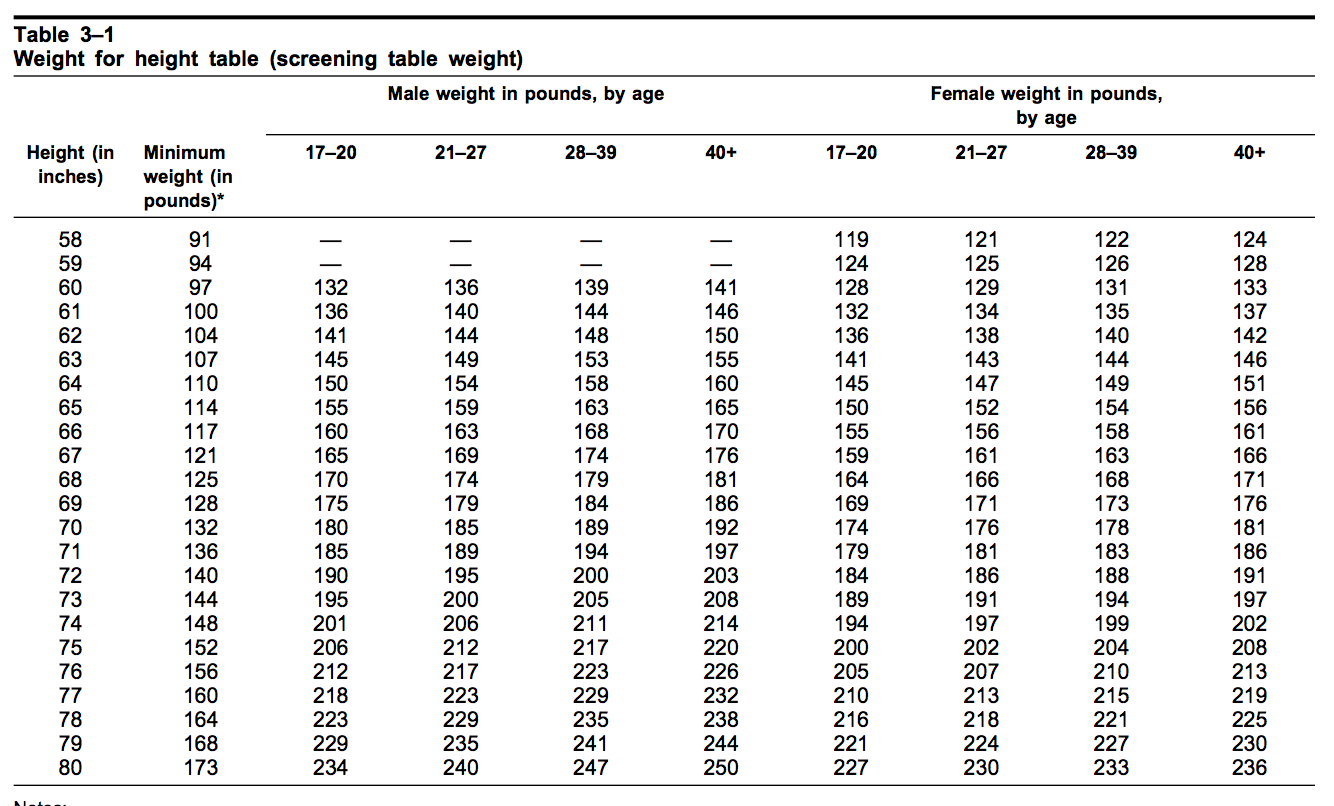The army is a beacon of strength, discipline, and dedication, attracting individuals from all walks of life who are eager to serve their country. However, before one can don the military uniform, there are certain physical requirements that must be met, particularly concerning weight and height. These parameters play a crucial role in ensuring that every soldier is physically capable of handling the rigors of military life and operations. Meeting the army weight and height requirements is not merely a formality; it is a fundamental aspect of the training process that helps maintain the overall effectiveness and readiness of the armed forces. Understanding these requirements can help aspiring recruits better prepare themselves for the challenges ahead.
For those who dream of a military career, knowing the specific army weight and height requirements is essential. These standards vary based on age, gender, and the branch of the military one wishes to join, creating a tailored approach to recruitment. The army prioritizes physical fitness as a core value, as it directly correlates to a soldier's ability to carry out their duties efficiently and effectively. Thus, understanding these guidelines is paramount for anyone considering enlistment.
In this article, we will delve into the specifics of army weight and height requirements, exploring how these standards are determined and what aspiring soldiers need to know to meet them. From understanding the measurement process to tips for meeting the standards, we aim to provide comprehensive insights that will empower potential recruits on their journey to serving their country.
What Are the Army Weight and Height Requirements?
The army weight and height requirements are determined by the Armed Forces Health Assessment (AFHA) and are essential for maintaining a fit and ready military force. These standards take into account various factors, including age, gender, and overall physical condition. The following table outlines the general weight and height requirements for men and women in the army:
| Category | Height (inches) | Weight Range (lbs) |
|---|---|---|
| Men | 60 - 80 | 140 - 240 |
| Women | 58 - 78 | 110 - 200 |
How Are Army Weight and Height Measurements Taken?
The process of measuring height and weight in the army is straightforward. Recruits are weighed on a calibrated scale and measured against a wall-mounted stadiometer. These measurements are then compared to the army's established body composition standards, which include the Body Mass Index (BMI) and body fat percentage.
Are There Exceptions to the Army Weight and Height Requirements?
While the army maintains strict weight and height requirements, there are exceptions and waivers available in certain circumstances. For instance, individuals with a documented medical condition or those who are exceptionally fit but may not meet the standard weight for their height could be considered for a waiver. However, these exceptions are not guaranteed and are evaluated on a case-by-case basis.
Why Are Weight and Height Standards Important in the Army?
The army weight and height requirements serve several vital functions. Primarily, they ensure that all soldiers are physically capable of performing their duties. Physical fitness is critical in the military, as soldiers are often required to engage in strenuous activities that demand endurance, strength, and agility.
How Do Weight and Height Affect Performance in the Army?
Meeting the army weight and height requirements is essential for operational effectiveness. Soldiers who fall within the established weight and height standards are generally better equipped to handle the physical demands of military training and combat scenarios. Furthermore, maintaining a healthy weight and height can enhance overall performance and reduce the risk of injury during rigorous activities.
What Are the Consequences of Not Meeting the Army Weight and Height Requirements?
Failing to meet the army weight and height requirements can lead to serious consequences for recruits. Those who do not meet the standards may be disqualified from enlistment or face additional scrutiny during the recruitment process. Even after joining, soldiers who consistently fail to meet these standards may face disciplinary actions, including the possibility of discharge from the service.
How Can Aspiring Soldiers Prepare to Meet the Army Weight and Height Requirements?
Preparing to meet the army weight and height requirements involves a combination of physical training, proper nutrition, and a commitment to maintaining a healthy lifestyle. Here are some tips for aspiring soldiers:
- Engage in regular cardiovascular exercise to improve endurance.
- Incorporate strength training to build muscle and maintain a healthy weight.
- Follow a balanced diet that focuses on whole foods and proper hydration.
- Monitor weight and body measurements regularly to track progress.
What Resources Are Available for Aspiring Soldiers?
Many resources are available to help aspiring soldiers prepare for the army weight and height requirements. These include:
- Fitness programs specifically tailored for military preparation.
- Nutrition guides and meal planning resources.
- Support groups and mentorship programs from current or former military personnel.
What Should You Do If You Don't Meet the Army Weight and Height Requirements?
If you find that you do not meet the army weight and height requirements, do not be discouraged. Instead, consider taking proactive steps to improve your physical fitness. Work with a fitness trainer, consult with a nutritionist, and set realistic goals to help you reach the required standards. Persistence and dedication can lead to success.
In conclusion, the army weight and height requirements are crucial for ensuring that all soldiers are prepared for the demands of military service. Understanding these standards and taking the necessary steps to meet them can empower potential recruits on their path to serving their country. Stay committed to your fitness journey, and you'll be well on your way to a fulfilling military career.
Unveiling The Age Of Jonathan Knight: A Journey Through Time
Unraveling The Britney Spears Controversy: A Journey Through Fame And Struggle
Unveiling The Mystery: Who Is Asher Dating?


